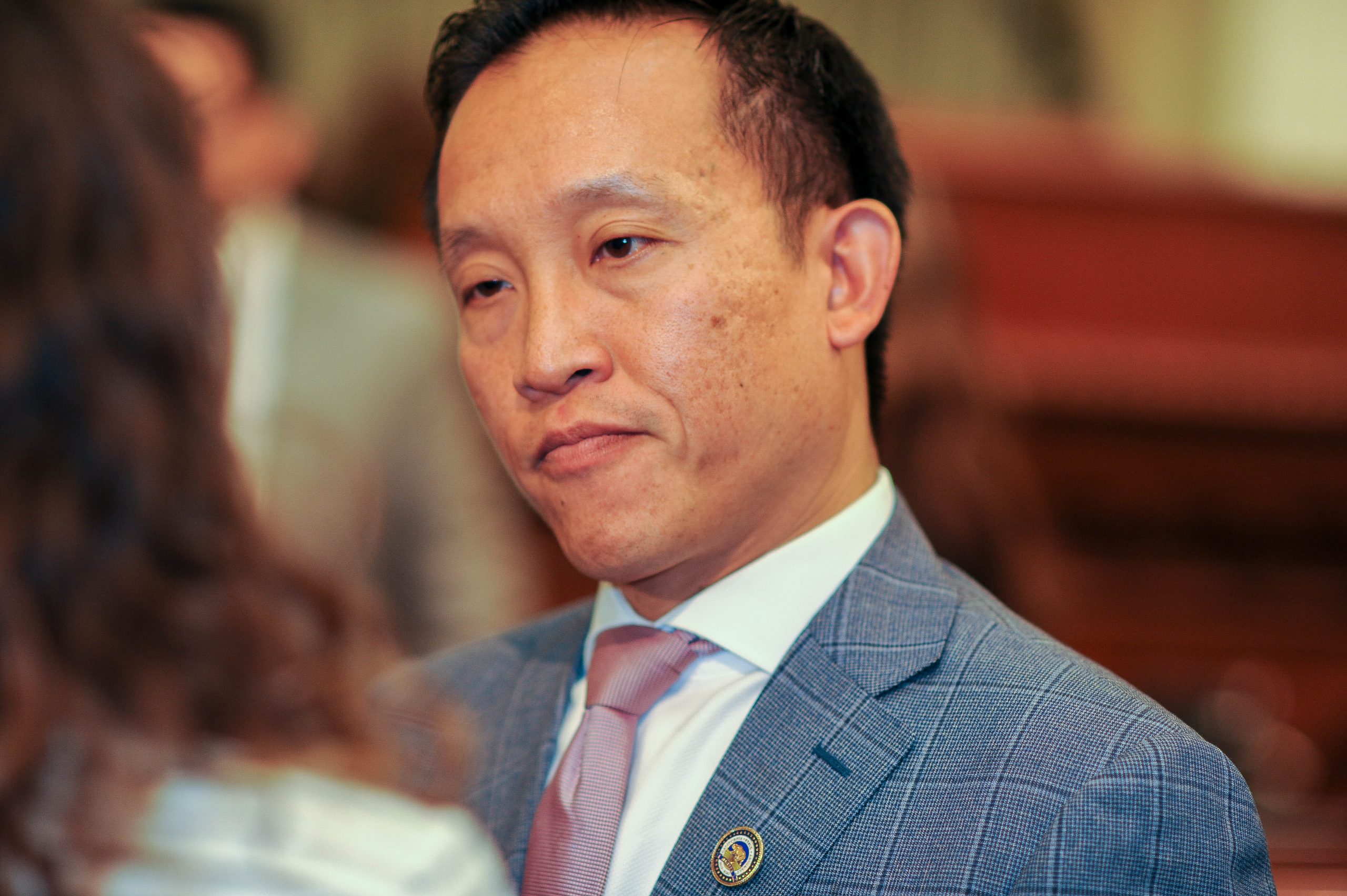
Assemblyman Chris R. Holden. (Photo: Kevin Sanders for California Globe)
Bill To Increase Power, Protections of Fast Food Workers Passed in Assembly
Would AB 257 stop potential minority owners of franchises in California?
By Evan Symon, February 1, 2022 5:18 am
A bill that would drastically increase the power and protections of over 500,000 fast food workers passed in the Assembly on Monday with a vote of 41-19, paving the way for a Senate vote later this year.
Assembly Bill 257, authored by Assemblyman Chris Holden (D-Pasadena) would create the Fast Food Sector Council within the Department of Industrial Relations, which would establish minimum standards on wages, working hours, and other working conditions related to the health, safety, and welfare of fast food restaurant workers at all fast food restaurants that have 30 locations or more in the United States. The Council would be comprised of 11 members selected by the Governor, Assembly, and Senate, with 2 members fast food employees, 2 fast food employee advocates, 1 franchise representative, 1 franchisor representative, and five coming from various state agencies.
The bill, also known as the Fast Food Accountability and Standards (FAST) Recovery Act, would also promote interagency coordination, would conduct full reviews of the adequacy of minimum fast food restaurant health, safety, and employment standards at least once every 3 years. The Council would also review and fast food changes as they occur, with public meetings to be held every 6 months. Counties, as well as cities with more than 200,000 people, would also establish smaller local Fast Food Sector Councils and work with the state Council to bring new regulations in locally.
Critically, AB 257 would also set standards for minimum wages, maximum working hours, and other conditions, with the Division of Labor Standards Enforcement to enforce them. Franchisors would be mainly responsible for compliance of all standards set and approved of by the Council along with their franchisees. Franchisees can also file against the franchise for not imposing these regulations in turn.
While the previous version of the bill, authored by then-Assemblywoman Lorena Gonzalez early last year, fizzled out mid-year, Assemblyman Holden took the reins of AB 257 with the purpose of wanting to bring fairness into the fast food industry and giving a voice to industry employees who don’t have one.
“This bill would make a big difference for a lot of folks out there, many of which are too afraid to use their voices because they have a lot to lose at their jobs” said Holden on Monday. “This is about building equity throughout the entirety of the fast food sector and I look forward to working with franchisors, franchisees, and employer representatives.”
“California has a chance to lead the country and address outstanding issues in the fast food industry. It is about fairness and it is about bringing all the responsible parties to the table to collaborate on solutions.”
???? AB 257, which would create a Fast Food Sector Council has PASSED✅ the California State Assembly. I commend my co-authors for sharing their experiences to help get this bill to the finish line!#california #Assembly #fastfood #fastrecovery #Ab257 #CaLeg pic.twitter.com/wkGRxi6PRw
— Chris Holden (@ChrisHoldenNews) January 31, 2022
While last year the bill failed by three votes of the 41 minimum needed, AB 257 passed Monday by the bare minimum. Both Democrats and Republicans opposed the bill , with some Democrats rejecting giving that much legislative power to the proposed Council and covering one industry when many others need protections, and Republicans concerned about the bill scaring away fast food franchises from coming to California or even leaving the state.
“The bill just drives entire franchises and franchise brands away from California,” said Assemblyman Kelly Seyarto (R-Murrieta) on Monday.
Fast food franchisors also responded to proponents who said that the bill would protect mostly minority workers.
“Well, guess who it’s also stopping? Potential minority owners of franchises in California,” said Pablo Huerta, an operator of several franchise locations in Central California, to the Globe. “California still creates lots of up-and-coming fast food restaurants with many people coming in to run them, and this bill would just quash that. Employees would have the Council, but that would lead to a lot of people not even bothering to open up new locations, or even keep existing ones open. And guess who looks to open these places up? Latinos, Asians, immigrants. A lot of people who want the American dream.”
“These are jobs still considered to be going to people for solely part-time work, like teenagers, the elderly, people who want interim positions, and so on, and were never really designed for full-time people or actual careers. This would change everything, and a lot of us may not think it to be worth it.”
However, supporters have maintained that protections and other increased measures are needed for the safety and well-being of workers.
“Fast food workers as well as local franchisees are often at the mercy of fast food chains,” said SEIU President Bob Schoonover on Monday. “The bill addresses this imbalance of power by bringing workers and franchisees together to raise standards and protections across the California fast food industry.”
AB 257, which has had a string of narrow votes leading up to the Assembly vote on Monday, is expected to be severely challenged in the Senate.
- Oracle Moving Headquarters Out Of Austin Only 4 Years After Moving Out Of California - April 26, 2024
- Congressman Adam Schiff Robbed of his Luggage in San Francisco Car Break In - April 26, 2024
- U.S. Senate Candidate Steve Garvey Denounces Protestors On Campuses Across California, Nation - April 25, 2024





Otherwise known as a “Union”
Kiss your burgers goodbye if this passes. Everything Democrats touch is ruined.
The Dems do this stuff because they don’t HAVE anything. As you know. Try explaining what will REALLY happen from this to a Dem sycophant who believes what he believes. Go ahead and good luck to you! If it were only possible to download into such people’s heads an understanding of how much contempt and disrespect someone like Asm Chris Holden has for his Dem voters. He (and his clones) think you’re STUPID!
This sounds like a backdoor – Unionizing here via gov’t
Fast Food Sector Council = Union Rep via Gov’t
This is about expansion of Gov’t control
Like everything else this State Government does this will drive up prices and drive business out of the state. This hurts everyone including minorities.